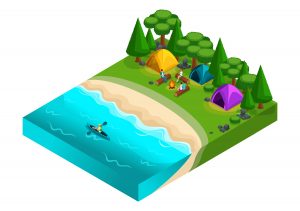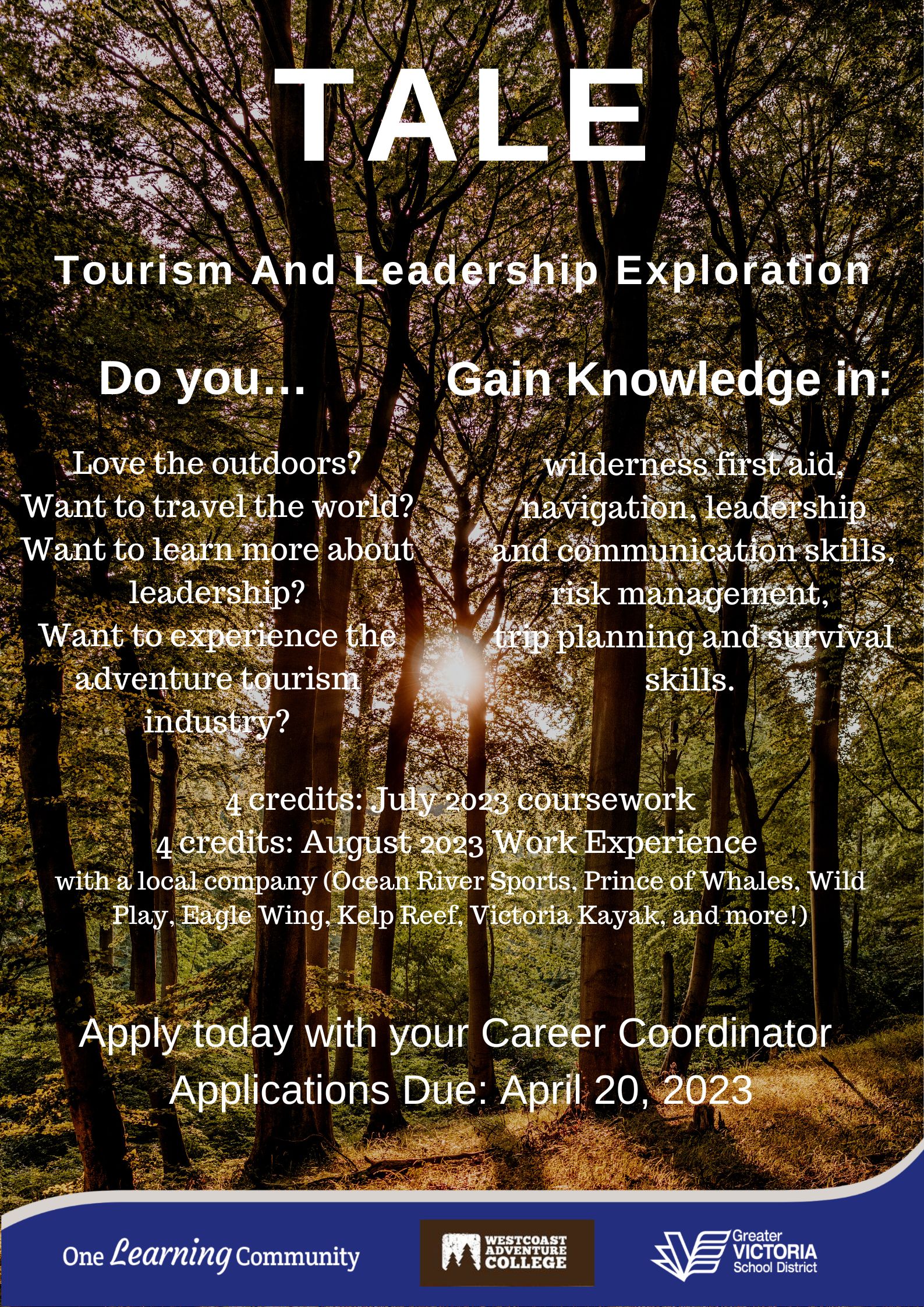Tourism and Leadership Exploration

This is a great opportunity for students to explore the outdoor tourism industry. This summer program is ideal for students interested in travelling and working in tourist destinations like Tofino.
Study for 1 month at the West Coast College 40-hour work experience with a local outdoor adventure company-often leading to permanent employment.
- Wilderness First Aid
- Navigation
- Risk Management
- Trip planning
- Leadership
- AND 8 School credits toward Graduation!
This op-ed by Andrew Young & Elaine Lam was originally published in Toronto Star on August 24, 2022.
Canadian youth are facing unique challenges that threaten to define Generation Z as the COVID Kids.
Almost two-thirds of youth aged 15 to 24 reported the pandemic harmed their mental health. They’re coming of age while trying to catch up on months of lost learning amidst an affordability crisis.
But there is a skill solution — the great outdoors.
“Young people with stronger connections to nature fared better during the pandemic. Nature-based outdoor learning helps youth build resilience, boost self-esteem, and increase group cohesion.” This develops social-emotional skills (SES), which equip youth to recover from setbacks, maintain a positive outlook and lays the foundation for career pathways. These skills are valuable: The Conference Board of Canada has identified increasing employer demand for SES, such as leadership, cultural competence, problem-solving, collaboration and communication. Unfortunately, employers often find that entry-level hires lack these important SES. One of the most promising mechanisms to equip our youth with SES can be found outdoors.
Findings from the national youth-serving charity Outward Bound Canada’s latest report indicate outdoor education plays a key role in building the skills youth need to succeed in this rapidly changing world. Outdoor learning programs typically involve the guided facilitation of nature-based experiences in small groups, facilitating camaraderie and the development of communication, co-operation, and trust. Participants overcome difficult situations without a contrived, definitive, or predetermined solution. In the field, young people are encouraged to participate, make and learn from their mistakes while fostering a stable and lifelong connection to nature. Yet access to nature is not equal. Lower-income households reported a lack of access to outdoor space. Those with the least access to nature also have the worst levels of physical health and mental well-being. Investments in SES development, and access to outdoor programs, will help build a socially inclusive future. This requires rethinking SES training and development. We need to consider formal and informal skill development as part of a lifelong learning process that leads to mental well-being and broader economic outcomes. The groundwork for a more equitable and resilient future lies within all types of learning, in traditional and natural spaces. It’s time to invest in Canada’s COVID Kids and help shape our country’s future.
It’s time to get outside.
If you want your office to be the great outdoors, see Sam in the Career Centre for more information and to apply.


